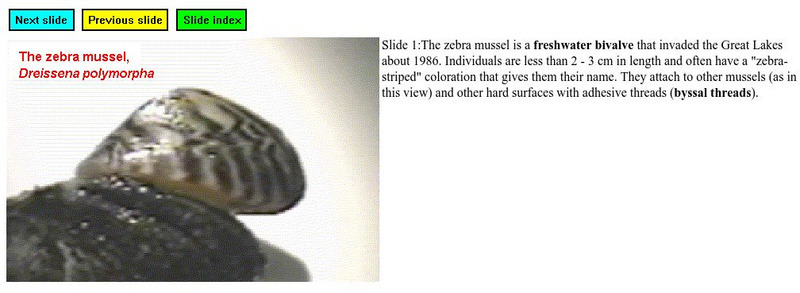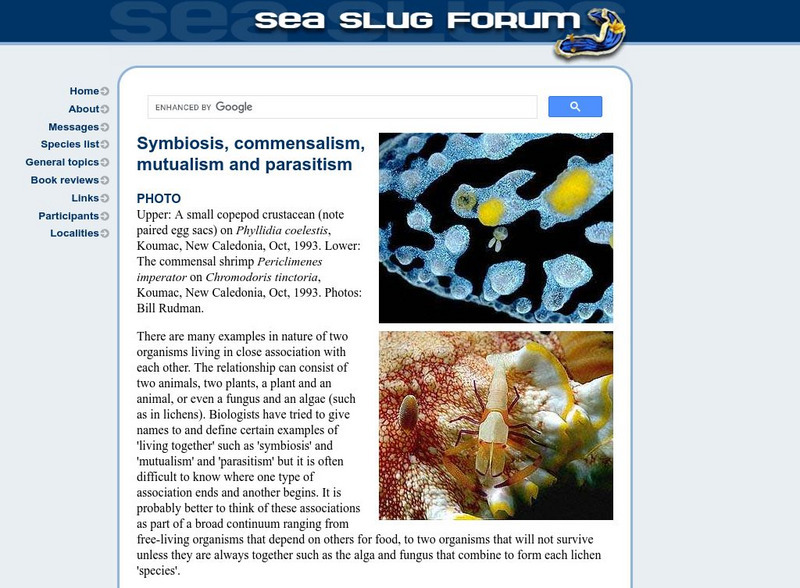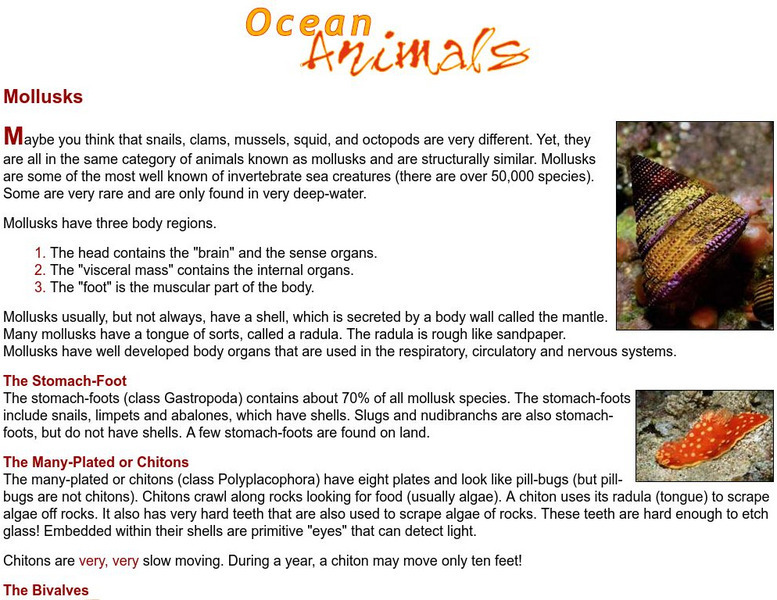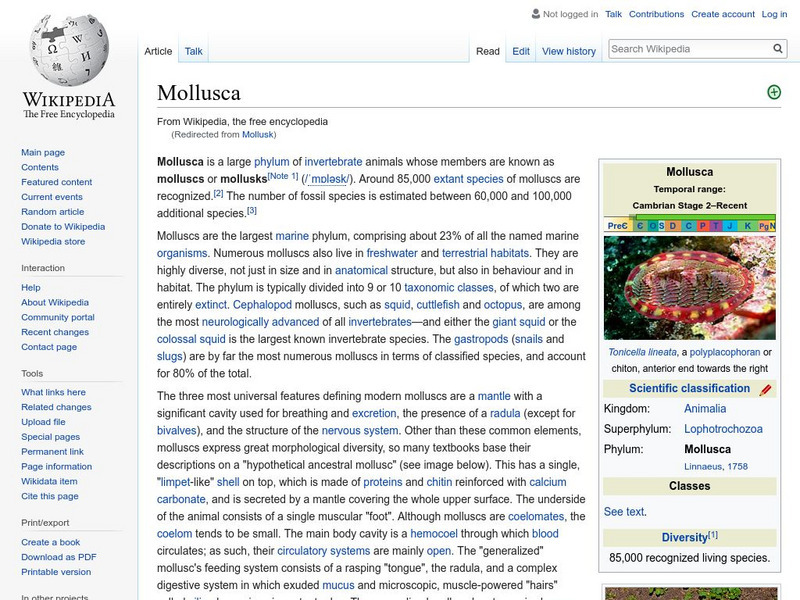Curated OER
Beach Life: Spanish Banks Field Trip
Students discover beach life. In this beach life activity, students visit a beach to find plant and animal species that live there. They discuss the life cycle and needs of some of these animals through a variety of activities.
Other
Zebra Mussel Page: Zebra Mussel Slide Show
Click through the whole slide show to find basic information on zebra mussels, how they live, the problems they can cause, and possible solutions.
Other
Mollusca
A general description of mollusca and some discussion of those found in the waters of Great Britain.
US Fish and Wildlife Service
Discover Freshwater Mussels: America's Hidden Treasure
This resource explains the critical role that mussels play in the United States.
Other
The Sea Slug Forum: Symbiosis and Commensalism
Question and answer site that contains a discussion of commensalism as it pertains to sea slugs. Nice photographs of aquatic commensalistic relationships.
Missouri Botanical Garden
Missouri Botanical Garden: Ocean Animals: Mollusks
The Missouri Botanical Garden describes the characteristics and natural history of mollusks in text and color photography.
Wikimedia
Wikipedia: Mollusk
Wikipedia offers detailed information on mollusks, a large and diverse phylum including shelled sea animals and the octupus.
PBS
Pbs: What's Killing the Oysters?
A special report provided for by PBS on what's killing the oysters of Ago Bay in Japan.
Other
Octopus of California
Twenty great pictures of octopi from California. This site also offers up close pictures of invertebrates, squids, and tidepools.
Other
The Cephalopod Page: What Behavior Can We Expect of Octopuses?
The navigation and spatial skills, tool use, play, and personalities of octopuses are covered in the studies discussed in this article.
Other
Wonders of the Sea
Good general description of the phylum with subordinate descriptions in each of the classes.
University of Massachusetts
University of Mass.: Freshwater Mussel Reproduction
This site, which is provided for by the University of Massachusets, gives a very good example of a typical bivalve reproductive cycle.
A-Z Animals
A Z Animals: Animal Facts: Oyster (Ostreidae)
Provides photographs and a fact card about the oyster. Discusses where they are found, physical characteristics, the four groups of oysters, how they filter water for food using their gills, predators, reproduction, and the impact of...
A-Z Animals
A Z Animals: Animal Facts: Snail (Achatinoidea )
Provides photographs and facts about snails. Discusses the different species, where they can be found, physical characteristics, diet, predators, and reproduction.
MadSci Network
What Is the Life Cycle of the Sea Snail?
Good description of the molluscan life cycle as a way of answering the question in the title.
PBS
Newton's Apple: Black Pearls
A lab activity to illicit discussion/understanding of the way in which mollusks produce an economic product.
Australian Broadcasting Corporation
Australian Broadcasting Corporation: News in Science: Monsters of the Deep
This site from the Australian Broadcasting Corporation explains the uses and effects of an octopus's poison. The information that is presented is somewhat brief, but factual, and worth checking out on the subject.
















